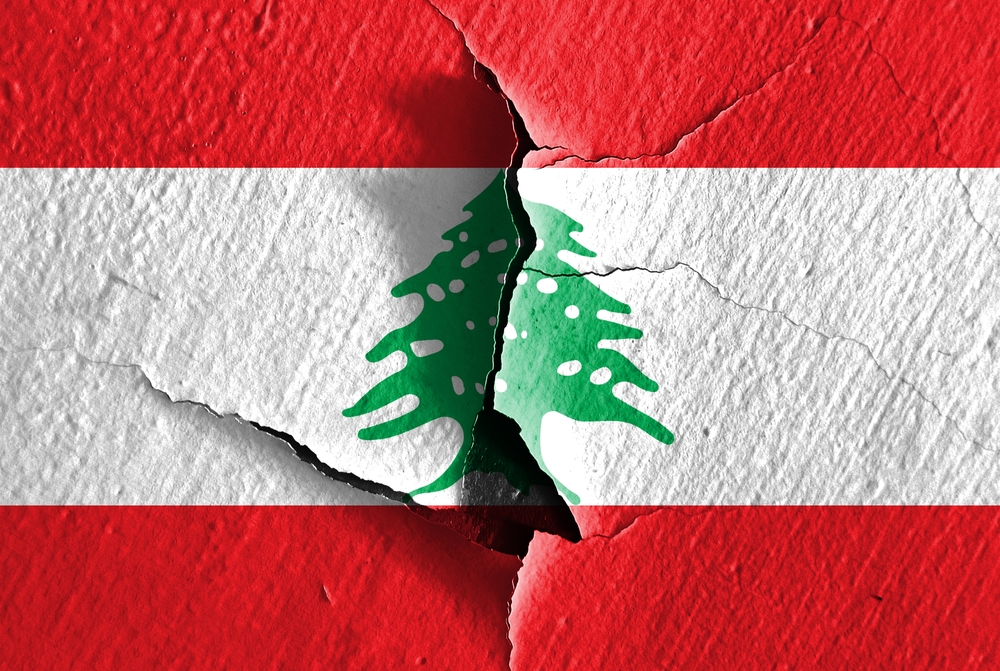FRESH AIR
A Fork in the Road for Lebanon
December 16, 2024 | Oved Lobel

From the late 1950s to the 1970s, Lebanon was dominated from Cairo by agents of Egyptian leader Gamal Abdel Nasser. From the 1970s to 1989, Lebanon was ruled by nobody, having collapsed into brutal, sectarian civil war among its many confessions. That war officially ended in 1990, when the Syrian regime of Hafez al-Assad co-opted or crushed all Lebanese and Palestinian factions and took over the country, imposing peace by force, the so-called Pax Syriana.
Since that year, Lebanon had been ruled from Damascus by Hafez and following his death in 2000, by his son Bashar, in partnership with Iran’s Islamic Revolutionary Guard Corps (IRGC) and its Lebanese organ, Hezbollah. Even after the Cedar Revolution and building international pressure forced Syria’s military withdrawal from Lebanon in 2005, the influence of Syria and its Hezbollah and Iranian allies remained paramount over every aspect of government and society.
That is, until December 8, 2024, when, in a lightning 11-day offensive by a coalition of rebel groups, the hollowed-out husk of the Assad regime simply melted away. What this means for Syria’s political future is uncertain, but what it means for Lebanon is more concrete: the end of Pax Syriana.
Unlike Israel’s operations that devastated Hezbollah and forced it into a ceasefire in late November, which did not unduly impact Lebanon’s internal politics, the end of the Assad regime means Lebanon today has the option to become a truly independent country for the first time in approximately 70 years. The question is whether the country’s factions can grasp the opportunity to establish a real government with a monopoly of force, or whether the crippling of Hezbollah and now the fall of Lebanon’s long-standing suzerains will simply lead to renewed civil war.
For decades, any political or security official, journalist or activist who either opposed or criticised or even did not sufficiently kowtow to the Assad regime and Hezbollah was assassinated, intimidated into silence or exiled. Alongside rewards in terms of power and patronage, this shaped what passed for Lebanese governments following the civil war. One last gasp of independent Lebanese government activity, coupled with low-level fighting in 2007 and 2008, led to Hezbollah’s takeover of Beirut and the end of even the semblance of independence.
That entire system could now theoretically change, although it would take years to root out the deeply entrenched vestiges of the Assad/Hezbollah regime. Parliament, for instance, can choose a real president that isn’t just another Lebanese Armed Forces (LAF) commander beholden to the Assad clan, as has been the case since the 1990s. For two years, Lebanon hasn’t had a president at all thanks to Assad and Hezbollah, who had been attempting to ensconce yet another puppet in the role; the Presidency was also vacant from May 2014 to October 2016 for the same reason.
The LAF itself need no longer play the role of Assad’s Lebanese gendarmerie and Hezbollah’s auxiliary force. Instead, at the behest of a truly independent and empowered Lebanese Government, it could impose at least a relative monopoly of force, finally fulfilling the 1989 Taif Accords and multiple UN Security Council resolutions since then that have called for the disarming of Hezbollah.
While severe corruption, electoral fraud and maladministration will continue to plague even an independent Lebanon, regardless of the roles of Syria and Hezbollah, establishing an actual democratic system could eventually lead to at least some accountability. Cross-sectarian protests in 2019 and 2020 against corruption and mismanagement provide some hope that a genuinely national Lebanese identity that at least somewhat supersedes the ingrained confessionalism could eventually take hold country-wide.
There is a darker scenario, however. Whatever illusions some Lebanese may hold about the civil war and their own society, the internecine and intra-confessional horrors of the 70s and 80s did not end because the Lebanese stopped hating one another or became exhausted by fighting, but because a far more powerful and brutal external player co-opted or cowed all the confessional elites and warlords into submission. The Lebanese are not a cohesive, oppressed group of liberal democrats just waiting to be liberated from Hezbollah and Bashar al-Assad.
The same individuals who ran the factions during the civil war, or else their children, are still in power, quiescent until now only because of domination by the Assad regime and Hezbollah. While they could theoretically decide to unite as Lebanese citizens, they are just as likely to decide to pursue a renewed sectarian scramble for power. This would lead to the LAF again shattering along confessional lines. It doesn’t help that the Shi’ites, estimated to be approximately 30% of Lebanon’s population, are almost universally beholden to Hezbollah.
Moreover, there are many Lebanese individuals affiliated with or sympathetic to the powerful Sunni jihadists who currently control much of Syria. An organised attempt to destabilise Lebanon from Damascus, or even a supply of weapons flowing in an uncoordinated fashion from the Druze, Christian and Sunni communities in Syria to their Lebanese kin, would further exacerbate Lebanon’s internal fragility.
Much will depend on regional and global developments and decisions, including how the Iranian regime navigates the collapse of its client state in Syria, the fulcrum of the so-called “resistance axis” and Hezbollah’s primary means of armament and strategic depth.
The fall of Assad could eventually herald a truly independent future for Lebanon. It could also result in no substantial change to the status quo, with the venal and feckless leaders in Lebanon simply doing nothing, as has been their wont historically.
Or it could return Lebanon to its darkest days.
RELATED ARTICLES

US Middle East strategy amid regional instability: Dana Stroul at the Sydney Institute

Antisemitism in Australia after the Bondi Massacre: Arsen Ostrovsky at the Sydney Institute





















